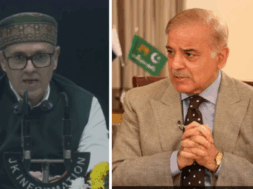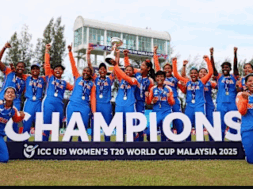
SC Grills Centre on Vaccination Policy, Highlights India’s “Digital Divide”
Manas Dasgupta
NEW DELHI, May 31: The Centre found itself in a difficult spot facing a battery of tough questions when the Supreme Court on Monday flagged “various flaws” in its vaccination policy, including making CoWIN registration mandatory totally ignoring the “ground reality” of “digital divide” in India.
Observing that policy makers must have an ear on the ground, a special bench of Justices D Y Chandrachud, L N Rao and S Ravindra Bhat asked the Centre as to how it planned to address the issue of digital divide since it has made CoWin registration for vaccination mandatory.
“You keep on saying the situation is dynamic but policy makers must have their ears on ground. You keep on saying digital India, but the situation is actually different in rural areas. How will an illiterate labourer from Jharkhand get registered in Rajasthan? Tell us how you will address this digital divide,” the bench sought to know from Solicitor General Tushar Mehta.
It added, “You must smell the coffee and see what is happening across the country. You must know the ground situation and change the policy accordingly. If we had to do it, you would have done it 15-20 days back.”
Besides the digital divide, the vaccination drive was also flagged for differential pricing, shortage of doses, and lack of access from rural areas of the country.
The court was told the government intended to vaccinate all citizens by the end of 2021, to which it highlighted roadblocks, including discrepancy in vaccine supply for different age groups. The centre has been given two weeks to respond to these issues and concerns.
“For entire population above 45, centre is procuring (vaccines) but for 18-44 there is bifurcation of procurement – 50 per cent available to states by manufacturers and price is fixed by the centre, and rest to be given to private hospitals. What is the (actual) basis for this?” the court had asked.
“Your rationale was high mortality in 45+ group (but) in the second wave this group is not seriously affected… it is 18-44. If purpose is to procure vaccines, why should the centre procure only for over 45?” the bench asked.
Data last week showed that nearly 50 per cent of the Covid patients in May were from 18-40 age group. The court also asked why states had to pay more for the vaccines than the centre.
“Why has the government left it to manufacturers to fix price of vaccines? Centre has to take over responsibility of one price for the nation,” the court had stressed, pointing to “price-fixing powers”.
Under the centre’s new “liberalised” policy, which came into effect May 1, states can buy up to 50 per cent of their vaccine needs from manufacturers, although at higher prices than that fixed for the centre.
Private hospitals have to pay even higher prices.
Manufacturers Serum Institute of India manufacturing “Covishield” and Bharat Biotech, the maker of “Covaxin.” Eventually reduced the prices for the state governments but they are still well above the ₹ 150 per dose that the centre pays. States have complained about the differential pricing, pointing out they are already suffering from the financial impact of the pandemic.
Shortage of COVID-19 vaccine doses has slowed down the pace of vaccination in the country. The centre was also asked about the global tenders floated by some state governments including Delhi, to offset what they say is limited supply of vaccines from the centre, particularly for the 18-44 age group.
“Please do not go into this issue on global tender. Some corporations (and) states have floated global tenders. This question is academic,” the centre had said.
“It is not academic. Are you leaving it to individual states… or does the centre represent the entire country?” the Supreme Court shot back. “Not practical for states to get vaccines from abroad… leaving them in the lurch,” the court added. Delhi and Punjab’s tenders were turned down because the foreign manufactures said they would deal only with the central government.
Over the issue of “digital divide” since CoWIN required compulsory registration, court asked “Everyone has to register on CoWIN (but) the digital divide… Is it realistically possible to expect (people) from rural areas to register on COWIN?”
Mehta replied that registration was mandatory as a person needed to be traced for a second dose and as far as rural areas are concerned, there are community centres where a person can get registered to get a shot.
The bench then questioned Mehta whether the government thinks that this process is viable. “Is this really practical?” and also pointed out that migrant workers travelling from one state to another were unlikely to have even that level of access. The court then asked Mehta to place the policy document on record.
The court had also stressed “the idea is not to pull down or criticise…”. “We are not going to run the government or policy. The purpose of this hearing is to create forum so voices across the spectrum can be heard and the centre takes them into account,” the court had said.
The centre referred to Foreign Minister S Jaishankar’s recent trip to the United States and said it showed the “seriousness of the government” in combatting the pandemic.
“If something can be changed for the better, the government will do that,” the centre had added.
Experts have warned of a third wave and stressed that it is imperative to vaccinate as much of the population, as quickly as possible, to minimise the impact of that and any future waves.
The top court was hearing a suo motu case on management of Covid-19 situation in the country.











